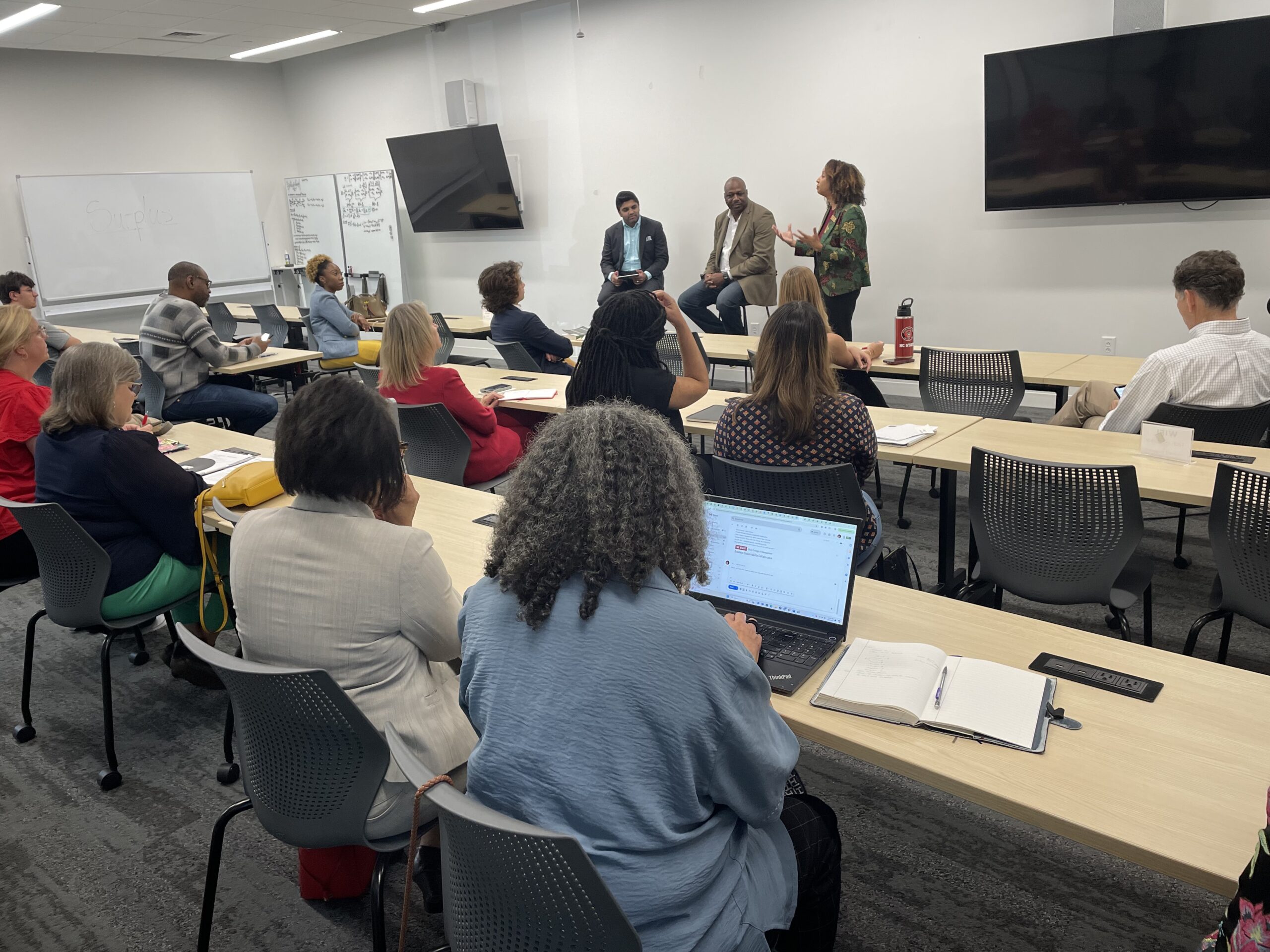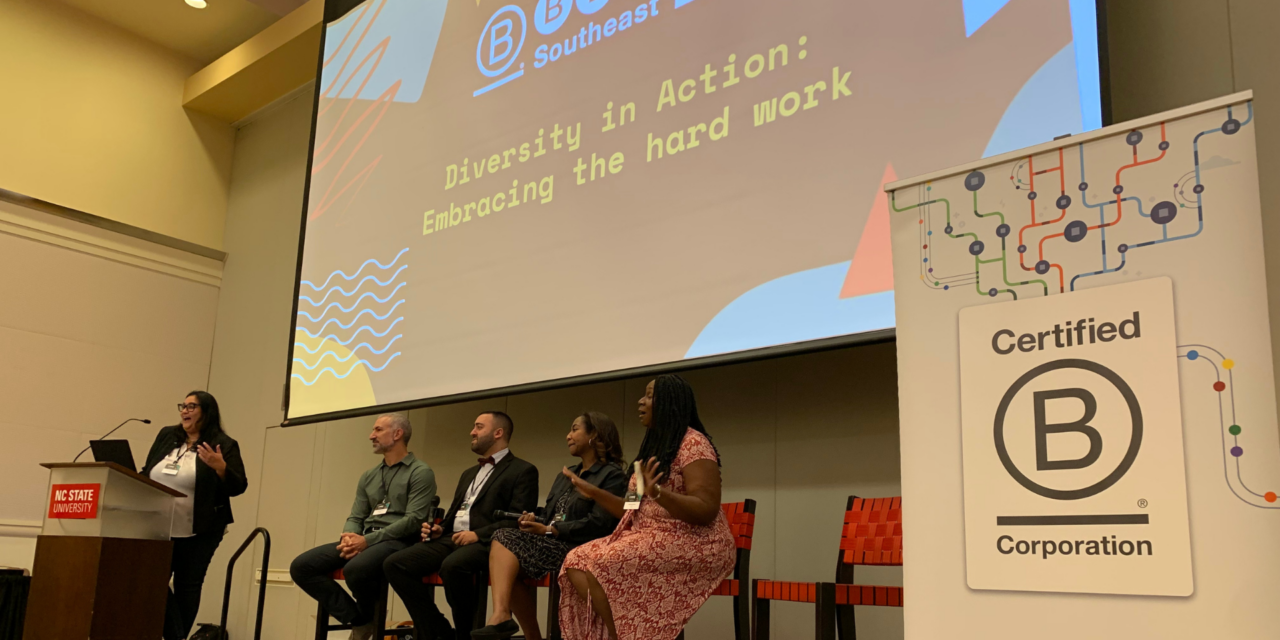Bringing It Home conference looks to strengthen NC’s local economies
Photo credit: Bringing It Home
On March 18th, close to two hundred people gathered at Asheville-Bumcombe Technical Community College to discuss strategies for strengthening local economies. The inaugural Bringing It Home conference brought together new economic pioneers from across North Carolina to share promising initiatives and models that are helping keep money circulating locally.
Note: The following reports on specific panels are drawn from Mountain Xpress’s excellent write up of the conference—please take a look at the full article for a deeper overview of everything that was discussed.
Some of the panels looked at particular sectors of the economy, like food, textiles and cosmetics, where localization efforts are already well underway. Companies like Opportunity Threads, a Morganton-based Latino worker-owned sewing facility that offers custom sewing services, and Block by Block Industries in Asheville, offer good examples of how small textile businesses create quality jobs. Panelists noted that locally-owned businesses are invested in long-term community survival, and are therefore naturally committed to economic and ecological sustainability.
However some panel participants explained how challenging it is to encourage businesses to localize their supply chain. Jennifer Flynn, brand manager of Blue Ridge Naturally, emphasized that there is much more work to be done before a “Made in NC” label indicates that the ingredients were sourced from NC when possible.
A number of panelists shared creative financing options that could help capitalize local producers and businesses. Carol Peppe Hewitt of Slow Money NC explained the power of peer-to-peer loans, and encouraged conference goers to start using their savings to grow their local economy. One participant demonstrated her commitment to the cause by opening a $10,000 Go Local certificate of deposit with Self-Help Credit Union right at the conference.
Conference organizers and panelists stressed the need to make sure that local economies remained inclusive of all income levels, races and creeds. Date My City founder Sheneika Smith was on hand to talk about her efforts to catalyze cultural and economic regeneration in Asheville’s black and brown communities.
Mark Hebbard of Just Economics made a strong case for why paying a living wage was in every small business’ own economic interest. However, Fund for Democratic Communities co-Director, Ed Whitfield, pushed back against the notion that a living wage campaign would build community wealth. “Typically, people’s wages cover their expenses, and increased earning often only funds additional consumer purchases. They don’t cover an accumulation of wealth… or provide for rainy days.” According to Whitfield, cooperatives and community land trusts would do more to sink wealth into the community for the long term.
Many conference panelists admitted that relocalizing the economy would be a slow process. For Franzi Charen, founder of Asheville Grown Business Alliance, this slowness was the movement’s strength:
“We’re like the tortoise in the race. We are strong, and we’re purposeful in our moves. We think 50, 100 years down the road. We do not have to get the the finish line tomorrow. If we want economic justice and freedom, we must take out money out of Wall Street and put it back into our streets.”
For more about the conference, see Mountain Xpress’s full coverage of the event.
- Categories:


